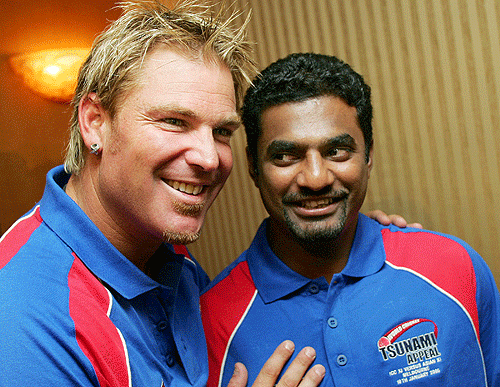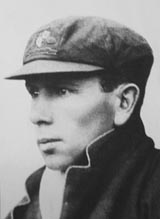Helping out the old enemy
As the world champions, Australia must sometimes feel their world is against them
Peter English
09-Jun-2005
|
|

|
As the world champions, Australia must sometimes feel their world is against them. A local journalist beat the English tabloids to dub the current squad "Dad's Army", their Spirit of Cricket document is designed to get fans to fall back in love with them, and a host of former team-mates and mentors plot against them most days.
Touring teams as recently as the 1960s spoke of going "home" to England. This time there will be familiar furniture in places as close as the opposition dressing room. Rod Marsh is in his final summer as an ECB selector, Troy Cooley, the former Tasmania fast man, is briefed as bowling coach to know every centimetre of the attack's run-ups, and Geraint Jones grew up Queensland, although it is doubtful if anybody remembers him as the state's second XI wicketkeeper.
In the shires Steve Rixon is preparing Surrey's Mark Butcher and Graham Thorpe - one currently injured and the other due for one - while John Inverarity has eyes on Ashley Giles at Warwickshire and Tom Moody is on the way to Sri Lanka from Worcestershire. Thankfully the sinister criticism of helping the old enemy has gone the same way as the White Australia policy, but if England win the Ashes a pocket of expat green and golds will be toasted in a small island and roasted in a larger one.
The cross-hemisphere collaboration before celebration is not a broadband-new phenomenon. In 130 years most things have been tried and then it has been a case of reinventing the wagon wheel. The team manager chastised Arthur Mailey, Australia's 1920s slow bowler, for showing Ian Peebles his grip for the bosie, which soon evolved into the wrong-un or googly. "Cricket is like art," Mailey replied as he then demonstrated his legspinner. "It is international."
Shane Warne will chat wrists and weapons with his bowling opponents, although he went through a magician's phase in the mid-1990s where he waited for the series to finish before opening his case. His tricks quickly became well known and promising spin bowlers could search children's stores for a finger-by-finger guide to his variations.
|
|

|
Open forums are not restricted to legspinners, but Bill O'Reilly successfully advised Alec Bedser as Australia's most decorated bunch battled for invincibility. Sitting comfortably in the press box after two tours of England, O'Reilly suggested a field change to Bedser during the first Test at Trent Bridge in 1948. Don Bradman was 130 not out overnight and if O'Reilly was "having a pop" leg-slip would move to fine leg about 12 yards from the batsman.
Two Bedser overs into the following morning Len Hutton caught Bradman's glance, and O'Reilly received a kindly wave. "Any bowler is fully entitled, in the interests of the game, to tell a fellow slave what he thinks of things," Jack Fingleton wrote in Brightly Fades the Don. There was patriotic debate about sharing the knowledge pool then, and another should resurface between Lord's and The Oval.
Bradman was generous on occasions and once told an English selector that Dick Pollard was the bowler who had given him most trouble that summer. The tip was ignored. In 2001 Steve Waugh suggested something similar by trumpeting Phil Tufnell, but the goodwill translation over half a century had turned from canny to cunning. Tufnell was ushered in for the fifth match before being booted out of Tests with 1 for 174. Waugh the hobbler limped to a farewell England century.
It's hard to predict the reaction if Marsh figuratively returns with the Ashes after his end-of-summer leaving party. Maybe it will be something else written out of Australian history. Maybe it won't matter at all.
What is certain now is that coaching is international. Mailey's treasured belief has made way for an industrious revolution of technological development and efficiency. Disciples globally disseminate ideas for use with and against their inventors and birth countries. Fortunately when play starts the research is quarantined in the dressing room and the new-age galleries are on show. As the artists walk out it doesn't matter where the coach was born.
Peter English is the Australasian editor of Cricinfo